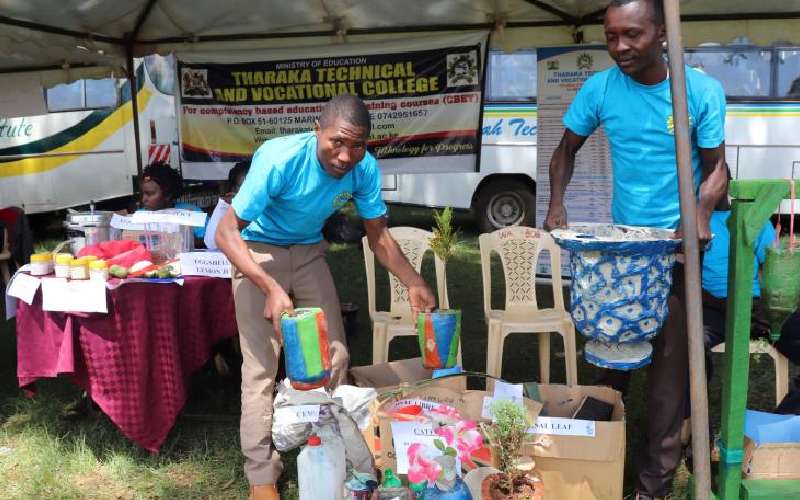×
The Standard e-Paper
Smart Minds Choose Us

Tharaka Technical and Vocational Institute students show flower vases they made using sisal fibre, cement and water. [Joseph Muchiri, Standard]
Kenya’s Vision 2030 will be achieved by having more technicians and skilled labour. It’s a fact that any country that has ability to create sustainable jobs also defines its economic well-being.